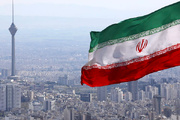On the 36th anniversary of the passing of Imam Khomeini, the architect of the Islamic Revolution in Iran in 1979, the Iranian nation once again pays tribute to the memory of this great leader.
Each year on June 4th, the anniversary of Imam Khomeini’s demise is commemorated in the Islamic Republic.
Khomeini, better known as Imam Khomeini, was the founder of the Islamic Republic and leader of the 1979 Islamic Revolution, which ended autocratic rule.
The main ceremony is held at his mausoleum in southern Tehran and is addressed by the leader of the Islamic Revolution, Ayatollah Seyed Ali Khamenei, with foreign dignitaries in attendance.
Iranian lawmakers visited Imam Khomeini’s mausoleum to reaffirm their commitment to the Islamic Revolution's ideals and the legacy of Imam Khomeini.
The visit, which included a welcoming by Hassan Khomeini, the Imam's grandson and custodian of the mausoleum, preceded the anniversary of Khomeini's demise.
At a ceremony, speeches emphasized the importance of upholding the Islamic Revolution's values, the Imam's role in modern Iran, and the Khordad 15 uprising as a key event against the Pahlavi regime.
The event commemorated the Islamic Revolution's sacrifices and the ongoing dedication to its principles.
Imam Khomeini, born on September 24, 1902, spent years in exile in Iraq, Turkey, and France, leading the movement that overthrew the Shah, Mohammad Reza Pahlavi, and established the Islamic Republic.

He began religious studies at a young age and later taught Islamic studies.
He married in 1929 and had seven children. He authored numerous books on philosophy, theology, ethics, and politics. Imam Khomeini's 1979 revolution inspired many across the world. He died on June 3, 1989, at the age of 86.
Following a 1979 referendum where over 98% voted in favor, he laid the foundation for the new republic, shifting away from monarchy and Western influence.
With his innovative thoughts, Imam Khomeini guided the path of the Islamic Revolution and established a system based on Islamic and popular values.
He courageously resisted internal tyranny and external dominance and, with his wise leadership, led the Iranian people toward independence and freedom.
Imam Khomeini's enduring ideals inspire justice and freedom worldwide.
His teachings on self-reliance and resistance against oppression resonate deeply in a world facing injustice and inequality.

Imam Khomeini emphasized moral values, social justice, and Muslim unity. Iranians honor his life and teachings, recommitting to building a brighter future for their nation and the world.
The prominent figure was an ideal reformer who sought to establish a healthy society with educated and virtuous citizens. However, his ideal intention did not cause him to ignore the realities of political life.
Imam Khomeini focused on political power as a proficient means to attain divine ideals in the position of management.
He believed in the all-comprehensive essence of Islam and claimed that Islam is perfect by so there is no need to imitate other ideologies.
To him, politics is the highest form of religious commitment, and the formation of an Islamic state is the ultimate goal; however, other Ulama have not been mostly political.
Since he was an anti-colonial person, he saw colonialism as a major problem for Muslims.
He began his struggle against the Western colonial attitudes in the Pahlavi dynasty’s era.
He was the first scholar who directly challenged the Pahlavi regime and secular policies, which primarily aimed to eliminate Islam as a socio-political power.
In addition, its other goal was the elimination of Ulama’s religion-political leadership from Iran, where religion is an inalienable part of people’s lives.
Therefore, the Pahlavi polity redefined itself within the context of the modern world order.
Imam Khomeini puts forward Quds Day to highlight Palestinians' inalienable rights

Imam Khomeini urged all Muslims worldwide to demonstrate solidarity with the Palestinians and advocate for their rights.
International Quds Day is marked annually by mass demonstrations in Iran and other countries in support of Palestine.
This annual observance serves as a powerful symbol of resistance against the occupation of Palestinian territories and a call for the liberation of Al-Quds.
Beyond its religious significance, the occasion has become a platform for expressing broader anti-imperialist sentiments and denouncing what is perceived as Western bias in the Israeli-Palestinian conflict.
Reported by Tohid Mahmoudpour























Your Comment